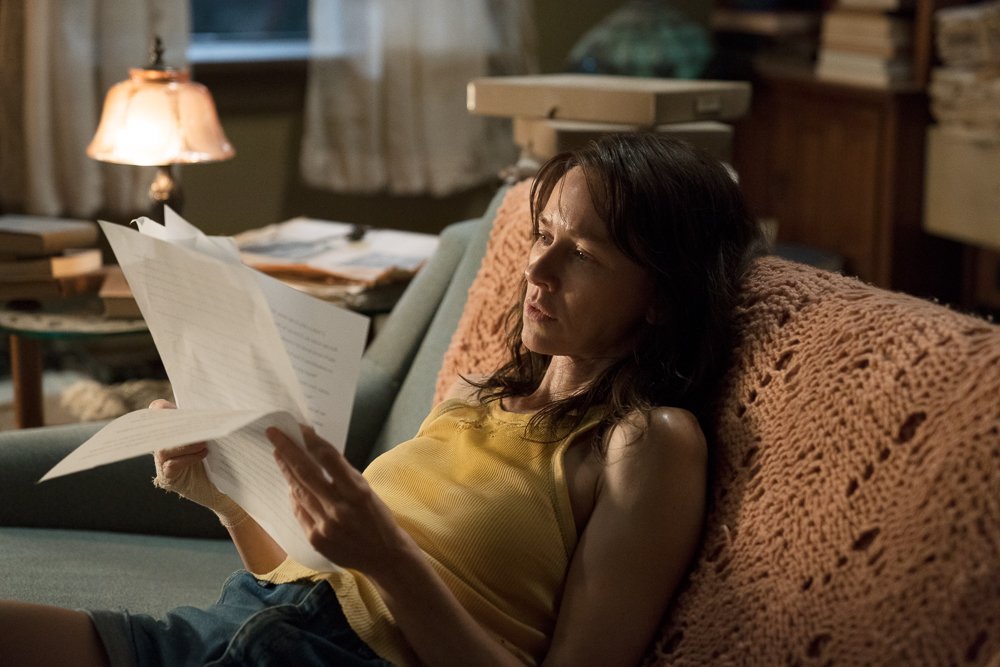Considering the current state of the UK being one of awkward enforced confinement, there’s something quite apt about Alistair Banks Griffin’s The Wolf Hour being released now. The film’s themes of isolation, fear of outsiders and of an oppressive, unknown sense of horror are remarkably timely.
Set in the grimiest part of 1977’s South Bronx, June Leigh (Naomi Watts) is a respected but reclusive author. Having been shunned by her family, she has repaired to the solitude of her grandmother’s old apartment. In her self-perpetuated seclusion, she’s developed a form of agoraphobia, and has dwindled her cash reserves almost to nil. To make matters worse, violence constantly threatens to break into the stair, and someone keeps ringing her buzzer at all times of day and night.
It’s curious that writer-director Griffin chose to title this film The Wolf Hour, in an apparent reference to the Ingmar Bergman film Vargtimmen (or Hour of the Wolf), which is itself a film dealing with the story of a shut-away artist. There’s certainly a level of homage going on, in that while Bergman’s film was about creeping hallucinatory madness, Griffin’s depiction of paranoiac depression shows some of the same facets.
The film takes place almost entirely within her dark, dank and sweaty apartment, and it’s a credit to the work of cinematographer Khalid Mohtaseb that you can almost feel the sticky heat and filth that seems to emanate from the screen. With the constant thrum of the fans and the flicker of lights, the film maintains a claustrophobic and threatening aura.
The letdown is that Watts herself makes no attempt to make her protagonist less than difficult for the majority of the film. She’s brusque, awkward, shouty and unkind to almost everyone, taking what she needs parasitically. While some of her character is given form with later revelations, they’re never quite enough to make you care much for her. It’s certainly not a bad performance, but one that never lets you actually like her until far too near the end of the film. While Jennifer Ehle and Kelvin Harrison Jnr turn in far more sympathetic performances, both are ultimately glossed over and shunted out the door so the film can dwell on June’s unproductive stupor.
It’s still an interesting evocation of depression, writer’s block and the effects of isolation, but despite that, and the impressive look, the film is too weary, slow and dreary to save itself from mediocrity.
Available on Digital HD Mon 23 Mar 2020
